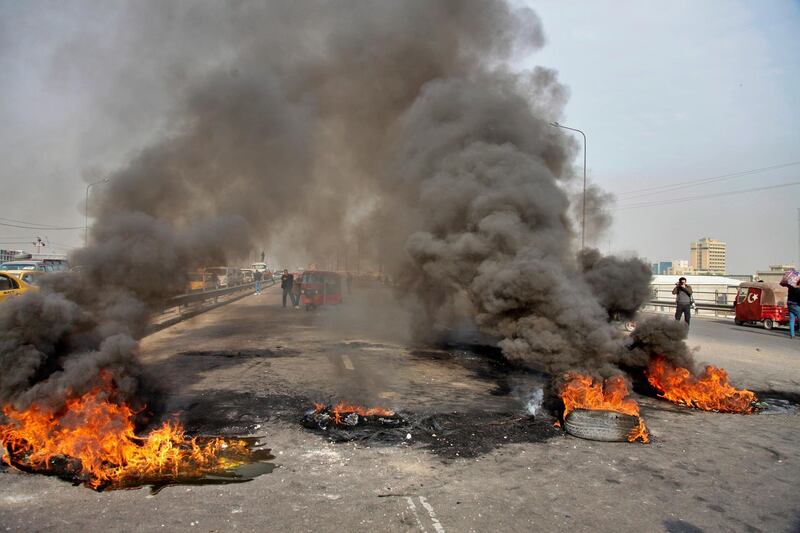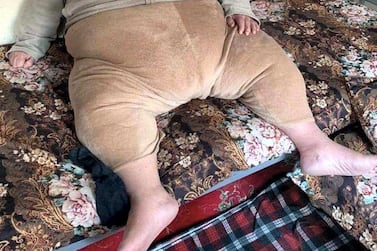Confrontations between security forces and protesters wounded dozens in Baghdad and southern Iraq on Sunday as anti-government demonstrations enter a third month.
Security forces attacked protesters with live ammunition and tear gas as protesters blocked Tayran Square in central Baghdad and vital roads and bridges in the southern city of Dhi Qar, local media reported.
Protests were also held in the southern provinces of Najaf, Karbala and Basra.
Social media videos showed riot forces attempting to enter Tahrir Square in central Baghdad on Sunday night to disperse the protesters.
Angry protests have rocked the capital and southern regions for the past three months, with demonstrators calling for an overhaul of a political system they deem corrupt.
More than 460 people have been killed and nearly 25,000 injured in the uprising.
Meanwhile, Iraq’s parliament postponed a critical session on Sunday due to a lack of quorum. MPs were due to discuss candidates to replace outgoing Prime Minister Adel Abdul-Mahdi, who resigned in December under pressure from protesters. The next session is due to be held on Wednesday.
In a statement on Sunday, Iraqi populist cleric Moqtada Al Sadr said he supported the recent escalation by anti-government protesters and criticised the political elite for not selecting a new leader.
On Saturday night, protesters torched the headquarters of the Iran-backed Iraqi militia group Hezbollah in Najaf.
Two protesters were killed on Friday and at least 20 injured after riot police fired tear gas and hurled sound bombs to disperse crowds on the Sinak Bridge that leads to the heavily fortified Green Zone in Baghdad, after protesters attempted to breach cement barriers set up by security forces.
The violence breaks a period of calm between the security forces and demonstrators after tensions between Washington and Tehran flared up following the US killing of Iranian commander Qassem Suleimani.
The strike also killed top Iraqi paramilitary commander Abu Mahdi Al Muhandis, deputy head of the Hashed Al Shaabi military network, which is dominated by pro-Iran factions.
Iran responded by firing missiles at Iraqi bases where US soldiers are stationed.
Mr Al Sadr has called for a "million-strong march" on January 24 to condemn corruption and foreign meddling in the country.
The march, and protesters' refusal to back down, have added to mounting pressure on the government to overhaul the political system.
No progress appears to have been made towards forming a new government, which protesters demand be comprised of independent candidates and excludes all established political parties and links to Iran.







